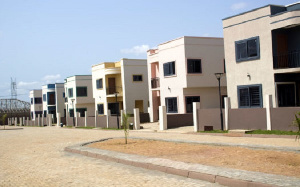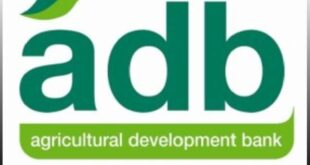In the words of Joseph Seth Aidoo Jnr, the Executive Director of one of Ghana’s largest real estate firms, Devtraco Group… “Ghana’s investment terrain, particularly its real estate market, provides financial security for potential business owners, as well as a landscape that offers comfortability for Diasporas.”
This statement is testament to the irrefutable fact that, Ghana’s real estate sector has evolved into a largely profitable investment area. The sector gained momentum, due to the country’s high urbanization rate, its increasing middle class, and the influx of non-resident Ghanaians and foreign homebuyers.
The reasons for one to consider investing in Ghana’s property market are numerous, now more than ever. Amongst them, here are ten (10) factor that will certainly make you want to explore Ghana’s real estate industry.
A fast-growing market
The demand in Ghana for property keeps skyrocketing – the 2021 Population and Housing Census report estimated the country’s housing deficit in excess of 1.7 million, with current annual supply pegged at 40,000 units, against the required annual supply of 200,000 units.
This high sector-demand is further widened by the strong interest from foreign business and tourism travelers. From a business standpoint, the current landscape shows the enormous demand size and market for homes, which creates opportunities for investment.
Huge return on investment
Ghana’s property industry is currently among sectors providing high Returns on Investment (ROI). According to the UN-SDG Investor Map, investments in the real estate sector have a returns profile ranging from 20% to 25%, depending on the size of project. Also, positive returns are expected on affordable house construction within a period of 10 years.
Demand for luxury property
As the drive for affordable housing continues in Ghana, the demand for luxury property has also surged, creating a niche market for estate developers. The demand is attributed to the rapidly expanding middle class, elites, and educated professionals in the country, who desire homes that go well with their sense of style and way of life.
Alluring incentives
The government of Ghana offers several enticing initiatives to encourage private sector participation in the real estate market. For instance, revenues of a certified company from an ‘affordable’ housing business are subject to only 1% income tax, for a period of five years of assessment.
Furthermore, the Government is currently spearheading the digitization of the National Land Registry of Ghana to make the land and real estate value chain more transparent and efficient.
Financing and costing
Over the years, Ghana’s finance ecosystem for its real estate market has significantly improved. Some of the big players listed by the UN-SDG Investor Map, that can support one’s business venture in this sector include World Bank Group, UNOPS, and the National Housing and Mortgage Fund. There are also flexible mortgage options available to anyone who wants to purchase property in Ghana. Some of the major mortgage providers include First National Bank, Republic Bank, Fidelity Bank, and Omni Bank.
Projected expansion of industrial real estate in rural Ghana
The rapid population growth and continuous congestion in urban areas is expected to cause an expansion of industrial real estate in rural Ghana. Consequently, housing demand in these rural areas will also increase, as workers in participating companies will want to move closer to their workplaces.
Despite the upsurge in real estate activity in urban centers, developers looking to explore areas with less competition, cheaper assets, coupled with a great potential for huge capital gains, can explore rural Ghana.
Limitless investment opportunities
For investors looking to invest in Ghana, the real estate sector brims with a plethora of opportunities that could yield significant returns.
Prospective investors can venture into the development of affordable housing units to bridge the housing deficit. This includes single family homes, small and large apartments. Investors can as well look into upgrading slums into modern communities and developing large-scale hotel construction projects. Opportunity also exists for potential investors to take up the task of providing various financing models for prospective homeowners.
Ghana CARES to bolster real estate industry
The Ghana COVID-19 Alleviation and Revitalization of Enterprises Support (CARES) is creating a vibrant housing sector to help industry players. The government aims to strengthen the capacity of Ghanaian building construction companies, and expand the housing mortgage and construction finance programme. Additionally, the government, through this initiative, is introducing a programme to facilitate access to land by housing estate developers.
Positive outlook
Outlook for the property sector remains positive, bolstered by the huge housing deficit which translates into a ready market. Ghana’s housing deficit is expected to further widen, as the country’s population is projected by the World Bank to keep growing at 2.2%, year by year. This will create more demand in the coming years.
The sector is poised to continually boom, supported by the country’s growing economy and a restructured regulatory system which will ease land acquisition and documentation for developers and investors.
AfCFTA and Real Estate
The African Continental Free Trade Agreement (AfCFTA) is expected to increase housing demand across Africa and spark a boom in the real estate industry. It is also projected to cut through the African commercial property market, especially within the Industrial and Logistics segment.
As the home of the AfCFTA secretariat, Ghana’s real estate industry is particularly well positioned to reap the rewards of this trade pact.
Why won’t you venture into Ghana’s property market?
The reasons to consider investing in Ghana’s real estate are endless…However, as put by Kofi Anku, a Board Member of the high-end residential development – Ayi Mensah Park, “the most compelling reason to invest in Ghana is the quality of the people. The country’s culture embraces entrepreneurship, and rewards long-term investments”.
Source: thebftonline.com
 Home Of Ghana News Ghana News, Entertainment And More
Home Of Ghana News Ghana News, Entertainment And More





